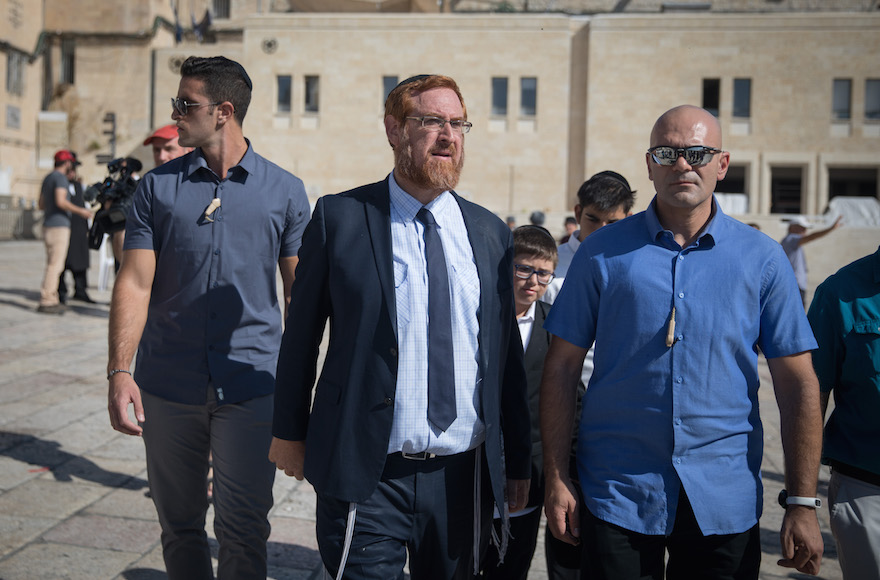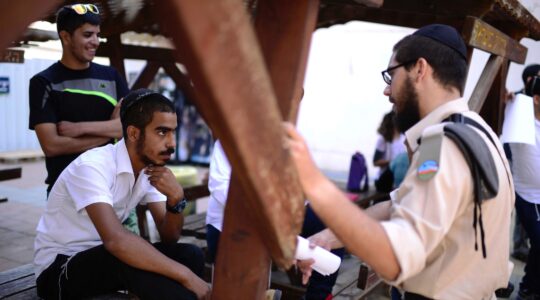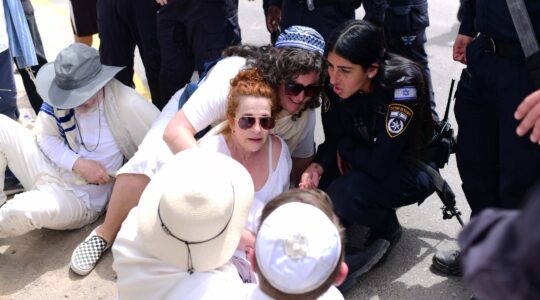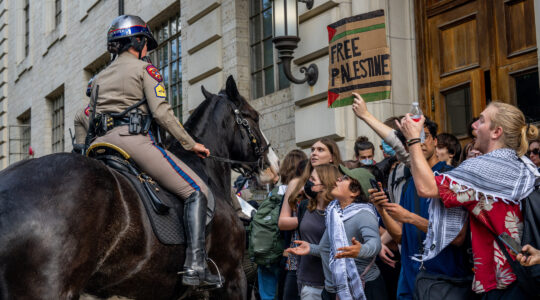JERUSALEM (JTA) — Two Jewish Knesset members visited the Temple Mount — the first time lawmakers have been allowed there since October 2015 — as part of a trial to gauge whether such visits can be reinstated.
Yehuda Glick of the Likud party and Shuli Mualem-Refaeli of Jewish Home visited the site Tuesday morning. Arab-Israeli lawmakers from the Joint Arab List boycotted the trial visit.
“Arab lawmakers will enter [the Temple Mount] whenever they want, not whenever Netanyahu decides to give the OK,” said Knesset member Ahmad Tibi.
In November 2015, Prime Minister Benjamin Netanyahu ordered lawmakers to stay off the Temple Mount amid a wave of Palestinian terrorism linked to claims that Israel was trying to change the status quo. Israel denied the claims.
Glick, a longtime activist for Jewish prayer rights at the Temple Mount, filed a petition against the ban, and Netanyahu in early July decided to allow the trial visits.
However, on July 14, before the decision went into effect, three Arab Israelis shot dead two policemen on the site. Israel responded by suspending the plan and installing walk-through metal detectors at the Muslim entrances to the site. Amid prayer sessions, riots and regional pressure, Israel eventually removed the metal detectors. But the ban on visits by lawmakers had remained in place.
The rules for Tuesday’s visit were set by the Knesset security office.
“I prayed for me and my family and my children and my wife, and I prayed for world peace,” Glick said Tuesday. “I prayed that God would give our prime minister strength to do his job, that he would be exonerated of all the crimes he is suspected of and would continue to unite the entire nation.”
Glick’s wife suffered a stroke two months ago and remains unconscious.
Prior to becoming a Knesset member, Glick led many groups of Jewish visitors to the Temple Mount. In 2014, a Palestinian terrorist shot and nearly killed Glick for his activism.
Since capturing the Temple Mount from Jordan in 1967, Israel has controlled access but allowed Jerusalem’s Islamic authority to manage the site, which is holy to Jews and Muslims.






